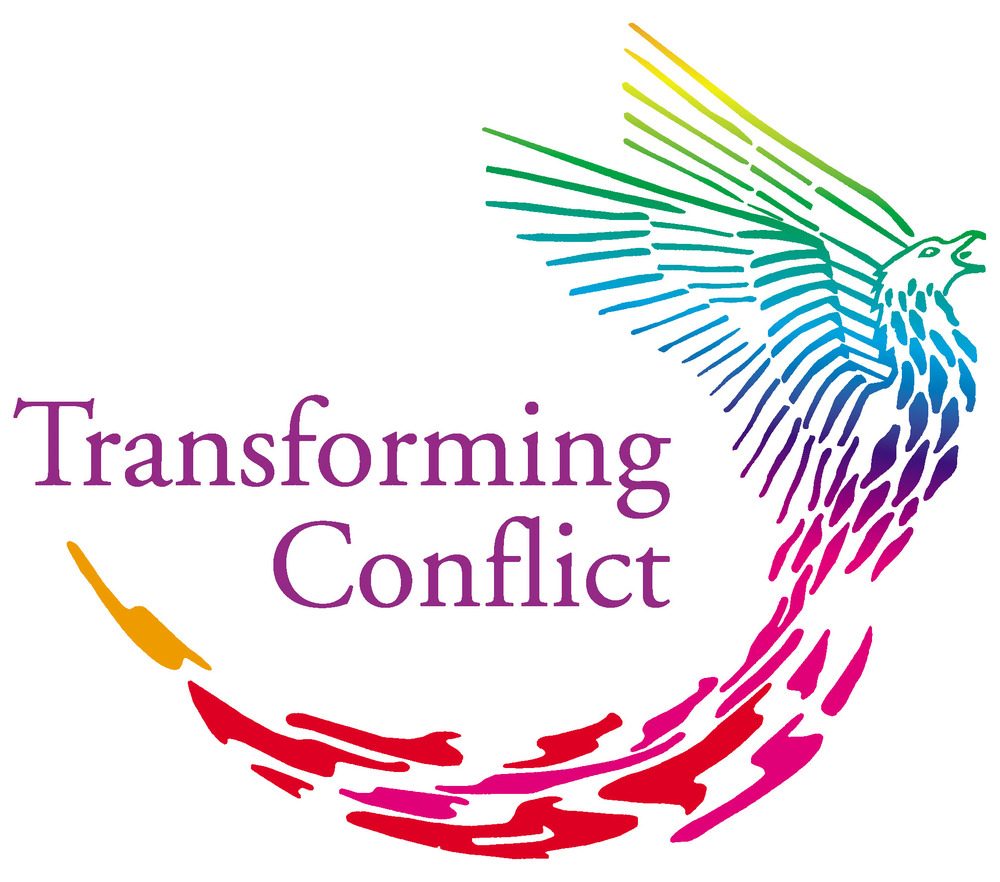WITHIN SCHOOLS
Everyone in a school has certain needs to be able to give of their best. These needs are often expressed as essential values – they are essential because they relate to what we need as human beings to function well together. These needs are remarkably similar regardless of age or status, role or position.
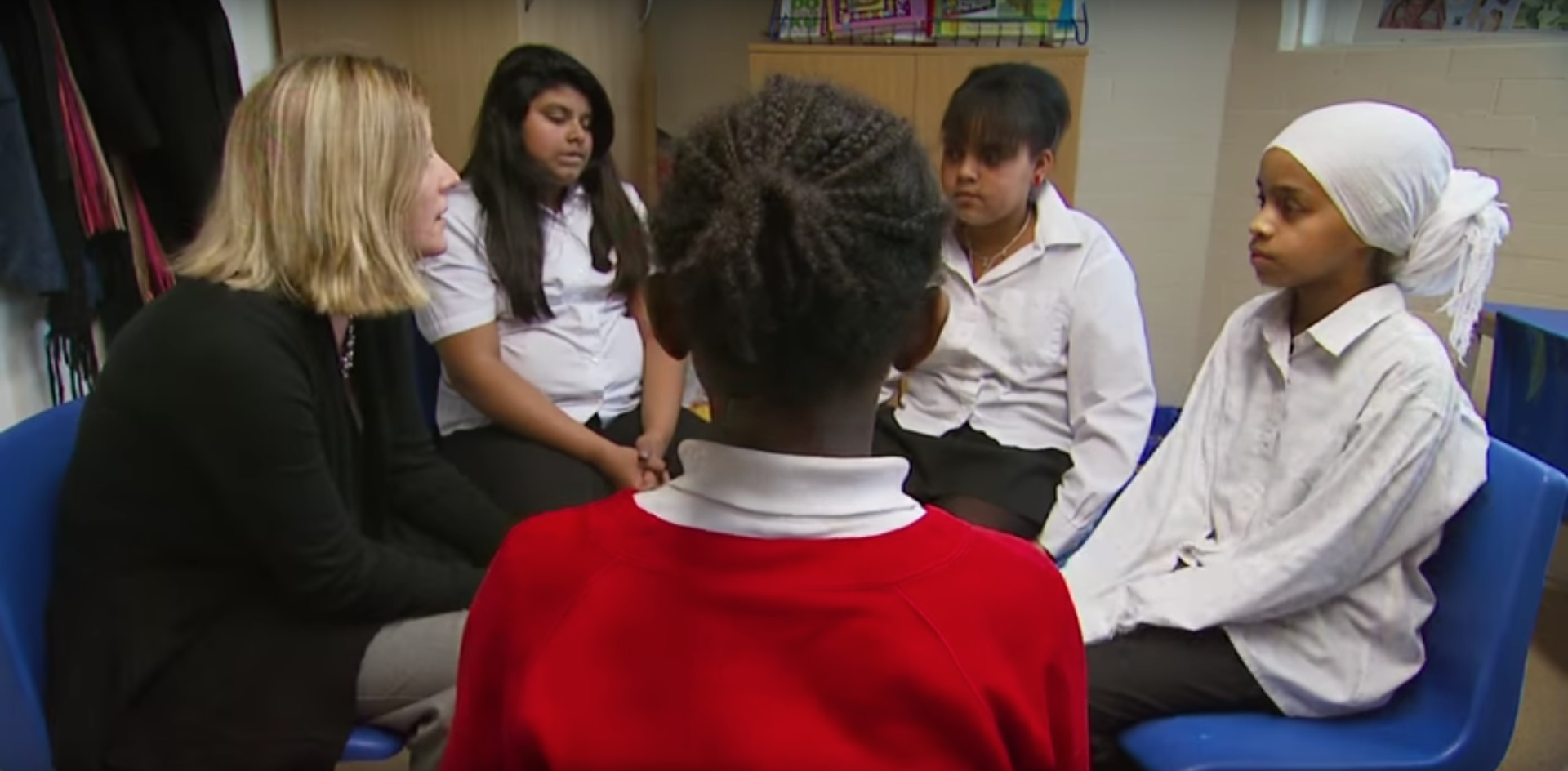
When these needs are unmet, or are ignored or violated, then people can become sad, resentful, hostile and behave in very negative ways towards others. This behaviour in turn has a knock-on effect on those around them…..Like ripples in a pond.
A downward spiral of conflict and increasingly damaged relationships can impact on the whole community – be it a school, a care home, an office or workplace.
A range of restoration skills and processes adopted by everyone in such a community can ensure that human needs are addressed and become the responsibility of that community.
This process can start in classrooms and staff rooms, where people sit in circle and explore together what everyone all needs of each other. The resulting list can become the basis of a list of agreed norms of behaviour, norms that everyone subscribes to, young and old.
Young people need to practice pro-social skills and so the teaching and learning policy of a school can help to maximise the opportunities for learning relationship skills like active listening, emotional literacy, negotiation, cooperation and conflict-resolution. Cooperative learning , assessment for learning and many other interactive techniques can all complement time spent in circles and small groups.
We base our
pro-active
relationship programmes for schools on our
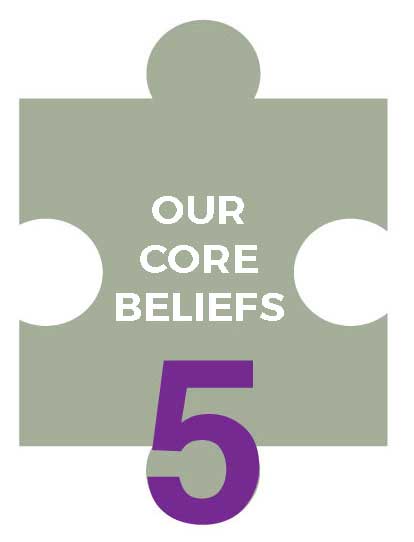
Restorative approaches do not have the monopoly on skills and strategies for developing safe, harmonious classrooms and staff rooms. However, their Unique Selling Point (USP) is what it offers people when things go wrong. They utilise the same relational skills people need to make relationships in the first place to respond when these relationships need to be repaired and harm needs to be addressed. Without the pro-active emphasis on developing relationship skills, both young people and staff will struggle to respond appropriately in the heat of the moment.
OUR 5 CORE BELIEFS
There is a whole range of different restorative conversations and meetings that can be used, depending on the situation, all based on our 5 Core beliefs. From these themes we have developed a framework for listening called Restorative Enquiry – when someone needs a non-judgmental listening ear.
OUR 5 CORE BELIEFS
The same five themes shape our Restorative Meeting model, which can involve a neutral facilitator and 2 people and or else larger numbers. If the situation is one where parents and carers need to be involved then a formal restorative conference can be offered, preceded by private preparation with all involved.
So what is so unique about a restorative approach to conflict and challenging behaviour?
Virtually all so-called ‘discipline issues’ in schools or residential settings either stem from, or result in, interpersonal conflict, which leave two or more people feeling angry, hurt, resentful, anxious or even afraid.
When in conflict people need:
- A chance to tell their side of the story – their experience
- Express their thoughts and feelings
- Understand better how the situation happened
- Understand how it can be avoided another time
- To feel understood by the others involved
- An acknowledgement of the harm caused, if not an apology
- To find a way to move on and feel better about themselves
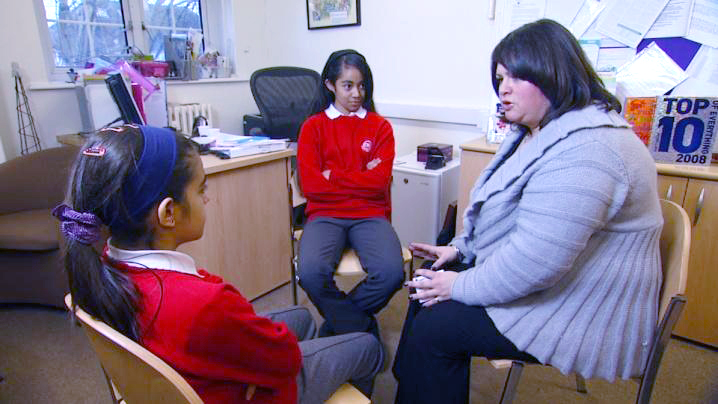
The potential advantages of restorative approaches in the school setting include:
- A safer, more caring environment A more effective teaching and learning environment
- A greater commitment by everyone for taking the time to listen to one another
- A reduction in bullying and other interpersonal conflicts
- A greater awareness of the importance of connectedness to young people. The need to belong and feel valued by peers and significant adults
- Greater emphasis on responses to inappropriate behaviour that seek to reconnect, and not further disconnects, young people
- Reductions in fixed term and permanent exclusions
- A greater confidence in the staff team to deal with challenging situations
- An increased belief in the ability of young people to take responsibility for their choices, and more people giving them opportunities to do so
IN PUPIL REFERRAL UNITS
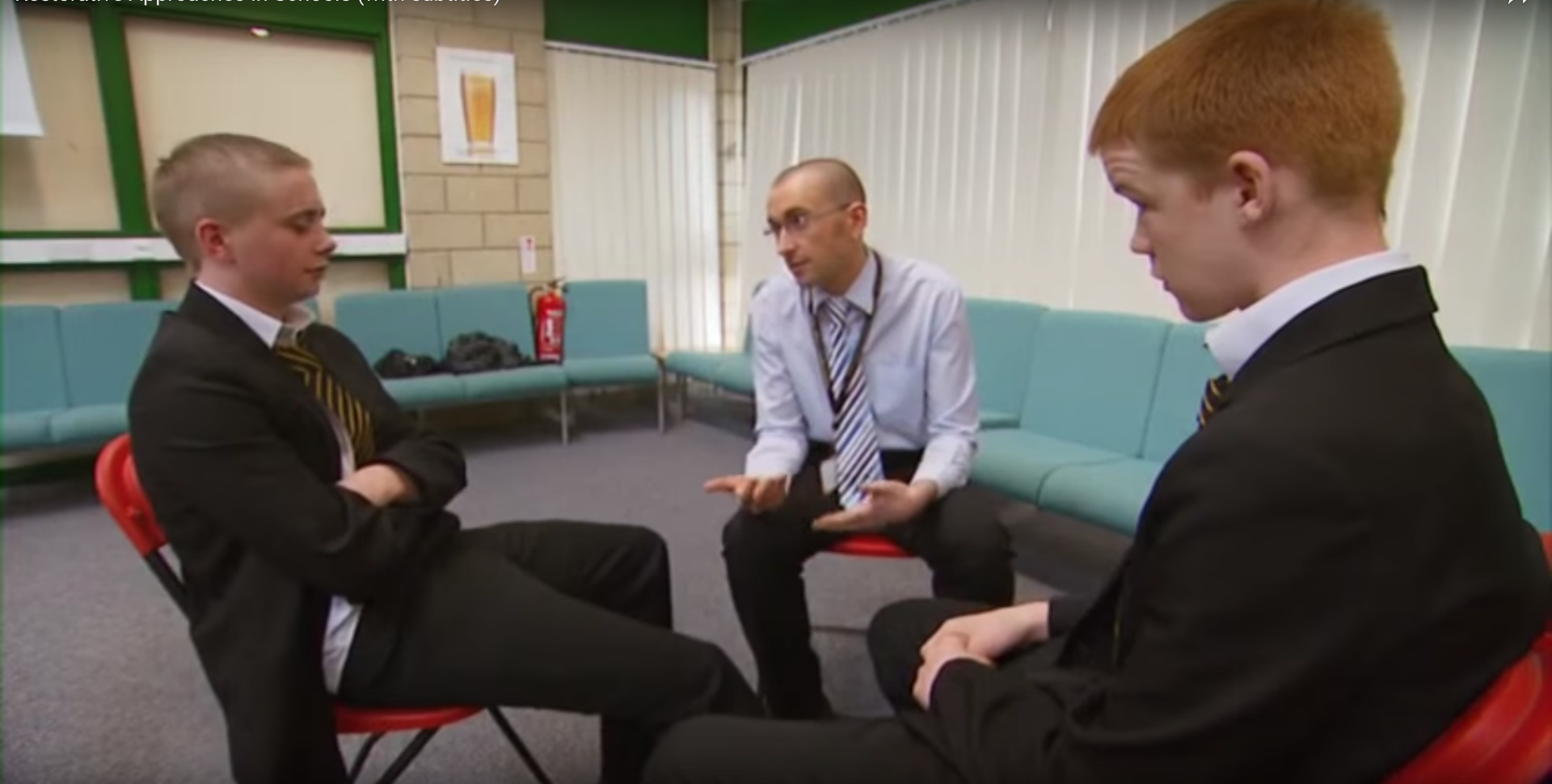
London Back On Track Pilot Project 2010 – 2011
Transforming Conflict is proud to have provided the training input for the Pan London Back on Track ‘Restorative Approaches in London PRUs’ pilot project. The evaluation report is now available and is very positive about the training, the implementation of a restorative approach and its impact on staff and young people.
‘Staff reported that the implementation of Restorative Approaches in their PRU has had a positive impact on student behaviour, staff response to behaviour and the general atmosphere in the setting. The biggest impact was felt to be in the type of communication that now happens in their setting. Staff and some students now use different language, there is more dialogue and students are given a voice and heard.’ (p29 Project report)

Following training input we continue to support the three funded projects informally – some staff are interested in becoming trainers themselves to help spread the word to other schools and units.
We offer seminars for all PRU staff so staff can find out more about implementing a restorative approach in their own unit. Led by Caroline Newton (who facilitated all the PRU training for the Back on Track project on behalf of Transforming Conflict) this seminar will give you a chance to reflect on your practice, find out the key elements of a whole unit-wide restorative approach and ask questions.
